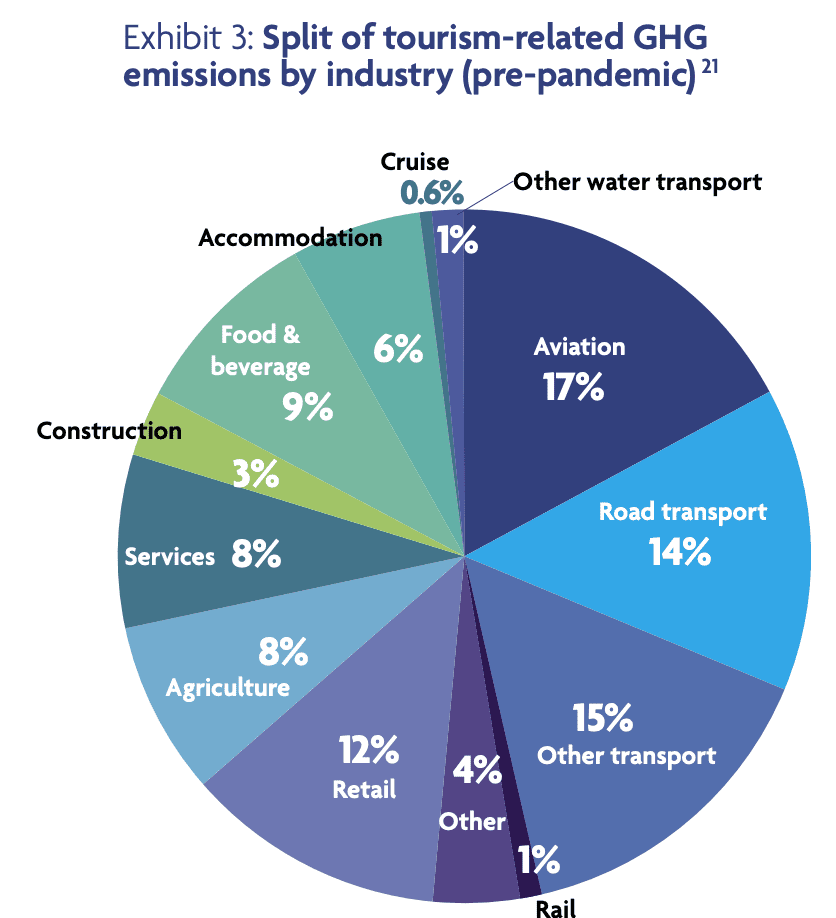Last updated on November 4th, 2023
TTC’s Shannon Guihan is thinking big about climate change
by Carolyn Ray, Editor
This past week, I woke up to an article that stopped me in my tracks. The headline read: “The era of global boiling has arrived.”
According to the UN secretary general, António Guterres, July 2023 has been the hottest month on record. His comments came after scientists confirmed on Thursday that the past three weeks have been the hottest since records began. According to the Guardian, “the steady rise in global average temperatures, driven by pollution that traps sunlight and acts like a greenhouse around the Earth, has made weather extremes worse.”
Forest fires, extreme weather, flooding, smoke and smog – this is a year when we have seen the effects of climate change first-hand, out our own windows. Climate change isn’t in the future, it’s now. This year will be even hotter than usual because El Niño, wind and water currents that heat the planet, is returning after three years of its cooler counterpart, La Niña. Around the world, countries are seeing record-breaking levels of forest fires, particularly in boreal forests. Weather patterns are becoming more unpredictable and 40% of the world’s oceans are experiencing marine heat waves, which is setting off alarms among scientists because of the devastating impact on ocean ecosystems, including fish and other marine life.
What does all of this mean for us as travellers? What can we do? And how can we contribute to the solution?
The travel and tourism industry accounts for around 11% of the world’s total carbon footprint, according to Skift. In this highly interconnected and largely unregulated web of aviation, accommodations and transportation, a unified approach to sustainability is challenging. As the primary influencers and consumers of travel, women can be part of the solution towards a sustainable future.
In this new ongoing series, we’ll explore what women in the travel industry are doing to tackle climate change, starting with one of the largest and most influential companies in travel, the 103-year old, family-owned The Travel Corporation (TTC). In 2008, The Travel Corporation (TTC) established the non-profit TreadRight Foundation, which encourages sustainable travel within the TTC family of brands. As the Chief Sustainability Officer & Head of TreadRight for The Travel Corporation, Shannon Guihan leads the overall direction on sustainability across the business, which encompasses some 40 brands across 70 countries, including guided tours, safaris, boutique river cruises, and luxury hotel brands.
Don’t miss an article! Sign up for our monthly newsletter now!
“Climate change is here. It is terrifying. And it is just the beginning. It is still possible to limit global temperature rise to 1.5C [above pre-industrial levels] and avoid the very worst of climate change. But only with dramatic, immediate climate action.” — António Guterres, UN Secretary General, July 2023
Quick facts on sustainable travel
- In 2019, tourism contributed about 11% of global greenhouse gas emissions (Skift)
- The air transport industry is responsible for 2 to 3 percent of man-made carbon dioxide emmitted
- Transport-related emissions from international tourism are projected to grow 25 percent by 2030, predicted a 2019 report from the United Nations World Tourism Organization.
- Accommodations represent 10% of the total annual emissions of the tourism industry, according to a study released by EY Parthenon and Booking.com.
- Although carbon offsetting is considered a way for travelers to neutralize their proportion of an aircraft’s carbon emissions on a trip by investing in carbon reduction projects, many aren’t doing it for a variety of reasons, not the least of which is conflicting reports on effectiveness.
The Travel Corporation sets a benchmark for others to follow
In July 2023, TTC released its second annual TTC Impact Report, which details the progress made in 2022 against its five-year sustainability strategy, How We Tread Right.
Launched in September 2020, the strategy features 11 measurable goals anchored to the United Nations Global Goals for Sustainable Development, designed to address impact on the planet, its people and wildlife. The annual report sets a precedent on greater transparency and accountability on sustainability in travel and tourism. and clearly outlines the ways in which TTC is advancing its centerpiece commitment to achieve net zero greenhouse gas (GHG) emissions by 2050. This goal replaced TTC’s original goal of being carbon neutral by 2030 and is backed by TTC’s Climate Action Plan and reduction targets.
TTC is one of only two global tour companies (the other is Intrepid), whose targets have been validated by the Science Based Targets initiative, a partnership between CDP, the United Nations Global Compact, World Resources Institute (WRI) and the World Wide Fund for Nature (WWF) to drive ambitious climate action in the private sector.

“The opportunity for real systemic change means thinking big,” says Shannon Guihan, Head, TreadRight / Photo from TreadRight
“I’m genuinely proud of the progressive approach that TTC has taken towards sustainability overall and climate, specifically,” says Shannon Guihan, Head of the TreadRight Foundation. “Our Carbon Fund certainly tops the list. Effectively an internal cost paid by each brand to a central fund, the cost of which is set by the brands’ individual carbon footprint. This fund is being used to fund our decarbonisation with the first set of initiatives to be invested in due to be announced in Q3.”
In 2022, The Travel Corporation became the first global tour operator with near-term, long-term, and net zero targets. To support its journey to net zero, Guihan shifted TreadRight’s focus to supporting nature-based solutions and conservation efforts that protect biodiversity and restore the planet. Current initiatives include Trees For Life’s Wild Pine project, Project Vesta, GreenWave, Rainbow Railroad, and The Tourism Pathways Project. Read more here.
Read More: Seven Ways Women Can Travel More Sustainably
“We ended 2022 by becoming the first global tour operator with all three validated nearterm, long-term and net zero targets; these targets apply to all 40 brands in the TTC family of brands. This necessitated an update to our Climate Action Plan and, critically, the launch of an industry first Carbon Fund – our signal to the marketplace that complacency and greenwashing are simply not an option. This was a major reset to our climate ambitions, one marked with ambitious goals and the financial commitment needed to ensure that we reach our goal of achieving net zero by 2050.” — Brett Tollman, Chairman, TTC
Reducing carbon emissions is a top priority for sustainable travel
This year, in a bold move, TTC launched its own Carbon Fund, an industry-leading fund designed to enable investment in green practices and technologies selected for their ability to decarbonize the business.
“The world needs carbon to stop being emitted into the atmosphere, and current levels need to be reduced,” Guihan says. “To perhaps oversimplify the latter, this needs to occur through nature-based solutions and technological solutions. Yet, decarbonisation – or limiting greenhouse gas emissions, is what science tells us is what will limit global temperature increases, the reason for extreme weather.”
Jeremy Sampson is CEO of the non-profit Travel Foundation, which works with governments, community groups and tourism businesses for fairer, climate-positive tourism.
“It’s trailblazing,” he says of TTC’s Carbon Fund. “This is the future; this is the direction that shows they are taking the idea that carbon has a cost and is doing something meaningful. I wouldn’t be surprised if others follow suit, but TTC deserves a lot of credit for taking this risk and proving that they can be accountable.”

“Decarbonization is the single most important thing we can do in the fight against climate change,” says Melissa DaSilva, President of TTC Tour Brands, North America. “We’re deeply committed to reaching net zero greenhouse gas emissions by 2050, if not sooner, From the introduction of TTC’s Carbon Fund which makes it possible for our business to reduce our carbon emissions more quickly.”
Some examples of this in practice include Trafalgar coaches equipped with solar panels that extend the life of the coach’s battery, to Contiki’s Chateau powered 100% by renewable energy. TTC is also aiming to source 50% of electricity from renewable energy sources, include at least one immersive impact experience known as MAKE TRAVEL MATTER® Experiences across 50% of the brands’ itineraries by 2025, reduce food waste by 50% across hotels & ships by 2025, and incorporate more local food products across the supply chain, and more.
Why We Need Carbon Removal (Source: Tomorrow’s Air)
- We need carbon removal because a build-up of carbon dioxide in our atmosphere is causing our planet to become warmer. This warming is creating extreme climate unpredictability, disrupting interdependent natural and human systems.
- Prior to industrialization natural systems were adequate to cycle carbon dioxide out of the atmosphere and allow Earth to maintain a stable climate. However, humans now add 40 billion metric tons (40 gigatons) of carbon dioxide to the atmosphere every year. Source: Global Carbon Budget
- Once in the atmosphere carbon dioxide remains for tens to thousands of years, trapping heat. (Source: gov)
- There is now more carbon dioxide in the atmosphere than natural systems alone can absorb. The more we cut emissions—by switching to renewable energy, increasing energy efficiency or reducing deforestation, for example—the less we will have to rely on costly carbon removal techniques.
- But even with rapid investment in emission reductions, the world will need to remove about 10bn tonnes of CO2 from the atmosphere every year by mid-century and 20bn tonnes of CO2 per year by 2100. Source: Economist “Investing in Carbon Removal: Demystifying Existing Approaches
What other tour companies can learn from TTC’s approach to sustainable travel
Growth and responsible practices don’t have to be at odds. In fact, Guihan says that TTC has made changes that any tour operator can implement.
“We’ve been reducing buffets, incorporating more and more vegetarian meals, prioritising local and organic suppliers, choosing central hotels to reduce transportation needs, choosing hybrid or electric vehicles in,” she says.
TTC is also working closely with destinations to reduce emission targets by re-evaluating its itineraries. One example of this is in Loch Ness, Scotland, where coaches would do ‘drive-bys’ to the famous Loch Ness Lake. Rather than abandon the itinerary or allow for another company to do drive-by’s, TTC has collaborated with the destination and created longer stays and more community and small business engagement. In partnership with the Travel Foundation TTC worked with Visit Scotland to prioritize the electrification of coach vehicles by showing there was more demand than was realized, which allowed for funding to be accelerated.
Sampson says tour operators need to recognize that they have an important contribution to make and a responsibility to deal with these issues by re-evaluating their supply chain, demonstrating a reduction in carbon emissions and taking seriously the opportunity to work with and promote local communities and products. Consumers should be thinking critically about holding tour companies accountable, without feeling the responsibility themselves.
“Tour companies need to take responsibility for where their emissions are coming from,” Sampson says. ”Where are they procuring from? Are they just taking the cheaper choice or are they actually prioritizing local equitable choices? They have an opportunity to effect change because they have influence over that supply chain. For a long time, tour operators have been pushing down the responsibility for sustainability to the local suppliers and small businesses and that’s not fair or equitable.”
We can all be part of the solution to climate change
As experienced travellers, we need to look deeper. In our Sustainable Travel webinar last October, Regenerative travel pionner Anna Pollock encouraged women to make more conscious choices when it comes to travel, saying: “I don’t think that we should stop travelling because of emissions alone. Too many people now are utterly reliant on our travelling. We, the small percentage of people that are privileged to do that. But I do think we can travel more consciously, mindfully. The choices that we make have to be conscious choices. We have to make informed choices. We can’t just go on autopilot when travel, because that will simply make things far worse.”
According to the Travel Foundation’s Sampson, tourism should be part of the solution to climate change by focusing on very concrete things.
“I believe business as usual and in tourism is no longer viable because of these because of these particular issues,” he says. “I think that consumers should be thinking critically about how to hold businesses accountable. Everyone can certainly be more thoughtful about their own contribution, but we really need to hold the system accountable for change.”
He also has a warning for the industry: “The travel industry is like a mirror of the world. It is contributing anywhere from 10% or more to the climate to the to global emissions. The industry is relatively unregulated and very, very growth focused. If tourism doesn’t sort of stop its trajectory, it will become 25 to 30% of global emissions.”
‘The opportunity for real systemic change means thinking big,” Guihan says. “Nature has never before needed greater caretaking while our current energy system is going to be taxed by our increased reliance on electricity over fuels. Look at these things in relation to one another rather than in silos – imagine the opportunity.”
Ultimately, however, the responsibility for reduction is with the industry, which Guihan says is still producing too much carbon dioxide. “Our priority first and foremost is reduction of what we produce through renewable energy, new technology, limit energy use, shifting to electric vehicles. Reductions, reductions, reductions must come first,” she says.
Slow travel, longer stays, choosing alternatives to airplanes like mass transit and smaller ships are just some of the things we can do. Look for more fuel-efficient planes, biofuels, hybrid ships and other technologies that are reducing impact.
This is the first in an ongoing series on women in sustainable travel generously sponsored by The Travel Corporation. What company or efforts should we feature next/?
How travel businesses are collaborating on climate action
Glasglow Declaration on Climate Action in Tourism: Over 450 organizations have become signatories of the Glasgow Declaration on Climate Action in Tourism to accelerate climate action. Look for signatories here.
Future of Tourism: Six tourism NGOs have created the Future of Tourism Coalition – the Center for Responsible Travel (CREST), Destination Stewardship Center, Green Destinations, Sustainable Travel International, Tourism Cares, and the Travel Foundation, with the guidance of the Global Sustainable Tourism Council (GSTC). These principles outline a bold vision for tourism’s path forward and as a signatory, we commit to place destination needs at the center of tourism’s new future and do our part to create a better tomorrow. Read more here.
UN Women and the Sustainable Development Goals: Globally, one fourth of all economically active women are engaged in agriculture, where they must contend with climate consequences such as crop failure. UN Women acts to combat climate change by advocating for gender equality and women’s empowerment in all efforts, including global climate talks, to mitigate and adapt to it. Read more here.
The Adventure Travel Trade Association (ATTA): The Adventure Travel Trade Association’s Climate Action Strategic Initiative convenes global leaders in travel to develop and share new and best practices to reduce travel’s carbon footprint. Take the pledge and learn more here.
Tourism Cares: Tourism Cares, a leading non-profit dedicated to advancing sustainable tourism, mobilizes the travel industry to use its business as a force for good by uniting, activating, and inspiring all sectors to make a positive impact through travel. The Tourism Cares Meaningful Travel Map is a B2B tool that helps the travel trade and sustainably-minded travelers easily source organizations making positive social and environmental impacts in destinations. Tourism Cares is hosting a Meaningful Travel Summit in October 2023. Learn more here.
Tomorrow’s Air: Tomorrow’s Air was created in 2019 by Christina Beckmann and Nim de Swardt and uncubated by the Adventure Travel Trade Association. Find out how to add a contribution to Tomorrow’s Air to tour bookings here.
More on Sustainable Travel
Sustainable Train Travel: A Breathtaking Journey Through the Swiss Alps
On Trafalgar Travel’s first ‘Swisstainable’ train tour, women can experience Switzerland’s most iconic train journeys and travel sustainably.
Practical Tips for Women to Prepare for Long-Term Travel
There’s nothing more exciting than being on the road for months, but planning for a longer trip requires some preparation to keep costs down and travel safely and well.
Five Ways You Can Teach Your Grandchildren About Sustainable Travel
As good travellers, we can teach our grandchildren how to make good decisions about the Earth when they travel.







0 Comments
We always strive to use real photos from our own adventures, provided by the guest writer or from our personal travels. However, in some cases, due to photo quality, we must use stock photography. If you have any questions about the photography please let us know.
Disclaimer: We are so happy that you are checking out this page right now! We only recommend things that are suggested by our community, or through our own experience, that we believe will be helpful and practical for you. Some of our pages contain links, which means we’re part of an affiliate program for the product being mentioned. Should you decide to purchase a product using a link from on our site, JourneyWoman may earn a small commission from the retailer, which helps us maintain our beautiful website. JourneyWoman is an Amazon Associate and earns from qualifying purchases. Thank you!
We want to hear what you think about this article, and we welcome any updates or changes to improve it. You can comment below, or send an email to us at [email protected].